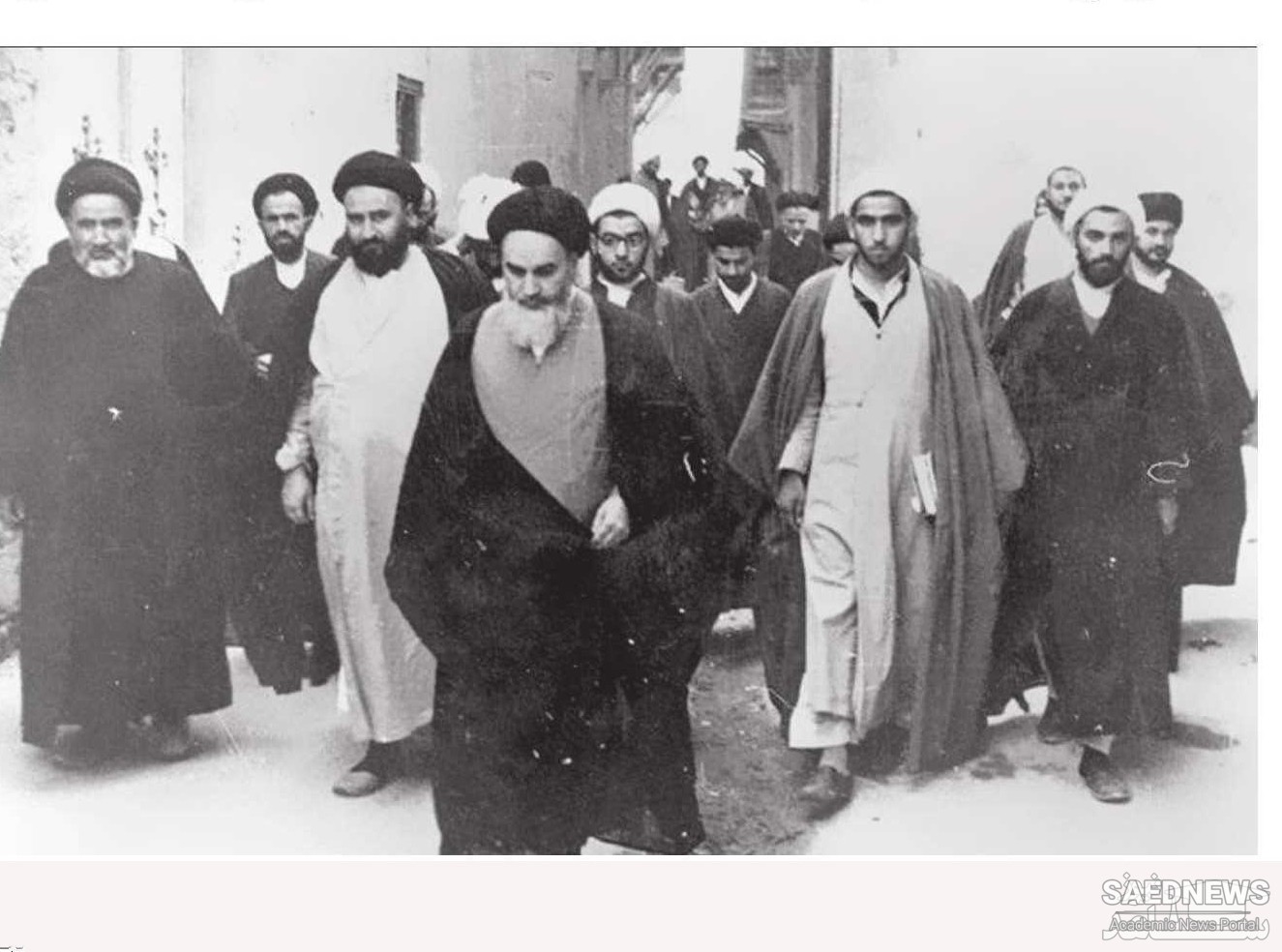His arrival followed the establishment there of the Hauza-yi Ilmiya by Shaykh ‘Abd Al-Karim Hairi. Imam Khomeini swiftly emerged as one of his most promising younger students. Under his guidance, Imam Khomeini studied the disciplines of fiqh and usul al-fiqh, and at the same time he learned philosophy and mysticism under the guidance of several prominertt teachers of the day, culminating in Mirza Muhammad Ali Shahabadi.
We need to heed the place of philosophy and mysticism in the learned and even the political career of Imam Khomeini. It is one of the remarkable facts about him that his political role in leading a revolution, unparalleled in recent history, has come totally to overshadow his achievements as a scholar, philosopher, and mystic. All too frequently in the modern Muslim mentality philosophy and mysticism are held to represent a retreat from reality, a total abdication of any kind of political and social role, as if they were merely abstract matters that had no real connection with the existing problems of Muslims and the Islamic world. Imam Khomeini is living proof that these two subjects, correctly conceived and pursued, are on the contrary the mainspring for a form of activity that is profoundly correct, guided by a clear insight that is not merely political and strategic but is at the same time an insight that is metaphysically correct and well guided.
As for mysticism in particular, it may be said that it is precisely the moral and spiritual qualities that Imam Khomeini has cultivated that have made him what he most obviously is -- a complete embodiment of the human ideal of Islam. This is a revolutionary leader who lives not in comfortable apartments but in the simplest circumstances, who spends his nights in prayer and supplication, whose daily sustenance consists of the simplest and most elementary foods. It seems to me that even his very thorough grounding in philosophy and mysticism has been of political relevance and effectiveness.
The earliest fame of Imam Khomeini in the teaching institution at Qum was precisely as an exponent of these two disciplines, philosophy and mysticism. He gave a number of well-attended lectures on some of the major texts of Islamic philosophy and developed great eloquence and a forceful teaching style. He also wrote in this period a number of texts, partly original and partly commentaries upon existing texts, which for the most part have remained unpublished. He also wrote a large number of books on fiqhy and came to be regarded as an authority in that field. Had his attainments been restricted to these relatively traditional area — fiq h on the one hand and philosophy and mysticism on the other — he would no doubt have entered the spiritual history of Iran as a great personality. But although in many respects he is the perpetuator, the culmination of a tradition, he also broke sharply with the existing tradition of the learned institution by cultivating from a quite early point radical political interests.
Shortly after the fall of Reza Khan, Imam Khomeini authored a book which was in large part a criticism of the Pahlavi dictatorship, entitled Kashf al-Asrar (The Uncovering of Secrets). It was uncompromising and clear, written in the same style that characterizes all his pronouncements. He vigorously criticized the regime of Reza Khan and laid open its dependence upon and subordination to foreign powers, at that time primarily Britain. He clearly saw that the hostility of the Pahlavi regime to Islam was not merely the idiosyncratic desire of a single dictator but rather part of a comprehensive strategy for the elimination of Islam as a social and political force throughout the Islamic world, and as such had been conceived by the major centers of imperialism and entrusted to the various local agents of imperialism.


 The Role of Holy City of Qum in Islamic Revolution
The Role of Holy City of Qum in Islamic Revolution














































